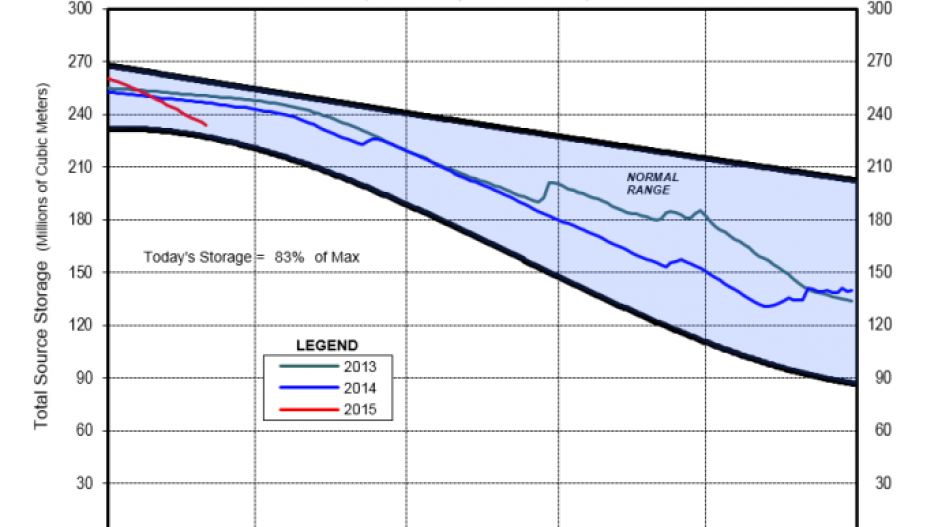Metro Vancouver may have to do something this year it normally doesn’t: buy extra water from BC Hydro’s reservoir on the Coquitlam River.
The regional district is closely watching water levels in the reservoirs that supply water to Metro Vancouver’s 2.4 million residents. Following a warm winter, snowpack levels are very low or nonexistent and this May was the driest on record. June, normally a rainy, cool month for the province, has seen very little precipitation.
“This is one of our record lows in terms of storage in our reservoirs,” said Darrell Mussatto, mayor of the City of North Vancouver and chair of Metro Vancouver’s utilities committee.
“The rivers and creeks that fill our reservoirs are not flowing very high.”
As the region heats up, so does our water use. This year, water use is up 17% compared to this time last year. Whereas the region normally uses around 1 billion litres a day, right now we’re using between 1.5 and 1.6 billion litres a day.
In 2014, Metro Vancouver asked BC Hydro to set aside 50 billion litres, worth $630,000, and ended up using 33 billion litres. This year Metro Vancouver has asked for 68.2 billion litres of water and has budgeted $862,000.
Read: Water worries rising for B.C. businesses
The regional district has not received confirmation from BC Hydro that the full 68.2 billion litres will be available; some may be needed to maintain vital river flows for fish.
“If weather keeps on the way it is, record dry and with our water use up, I’ll guarantee you we’ll be needing to purchase water from B.C. Hydro,” Mussatto said.
BC Hydro is not currently running its dams in the Lower Mainland and Vancouver Island because of the low water conditions.
“We’re managing the water in those dams for fisheries rather than power generation,” Mark Poweska, vice-president of power generation for BC Hydro, told Business in Vancouver in a June 17 interview.
Metro Vancouver’s water shortage response plan has four stages, and we’re currently in stage one, Mussatto said. That means there are minor water use restrictions in place, such as watering your lawn only three days a week.
The region has only gotten to stage three once in Mussatto’s memory, in 2002, and has never gotten to stage four. At that stage, pools would not be filled and there would be no watering of any public park, cemetery or sports field.
Municipalities and Metro Vancouver have been trying to get the word out that residents need to conserve their water: obey watering restrictions and do full loads of dishes and laundry.
“I personally have decided not to wash my car,” Mussatto said.
@jenstden




